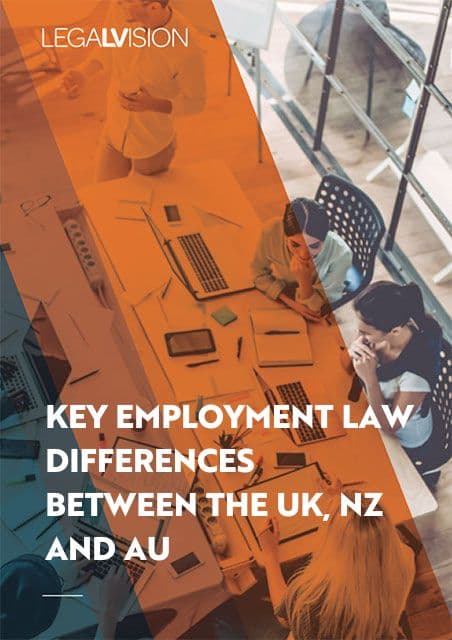In Short
- Principals and teachers have a legal duty of care to ensure volunteers do not pose risks to students.
- Most volunteers must hold Working With Children or Working With Vulnerable People certificates, though some exemptions apply.
- Volunteers must adhere to the state or territory’s codes of conduct, and procedural requirements must be met for safety and compliance.
Tips for Businesses
Check the certification rules and volunteer codes of conduct in your state or territory before engaging volunteers. Keep clear records, supervise volunteers, and assess any potential risks, even if exemptions apply. Regularly communicate expectations and procedures to staff and volunteers to maintain a safe and compliant learning environment.
Bringing volunteers into educational settings can be a great way to enrich your students’ learning, as volunteers can bring a breadth of experience and expertise that can engage and inspire students. However, there are laws and regulations that govern who can act as a volunteer at your institution, as well as what you and the volunteers must do to ensure the safety of your students.
This article will take you through your responsibilities as a principal or teacher, the certifications your volunteers need before they can work at your educational institution, and the volunteer code of conduct, which you must ensure your volunteers follow.
Your Responsibilities as Principal
If you are the principal of an institution that has students under the age of 18, you have certain responsibilities under child safety law. Further, you are responsible for meeting all the requirements noted in this article.
Duty of Care
As principal, you have a duty of care that you owe to your students. This duty involves arranging and organising volunteer programs in a way that minimises harm to students. This means that, as the principal, you must take care when organising volunteer programs and ensure that students do not face unnecessary risks, such as volunteers lacking proper certification or discussing age-inappropriate topics with younger students.
Ensuring Procedural Requirements are Met
Depending on the types of volunteers you bring in or the nature of your institution, you must meet certain procedural requirements. These measures can include having all volunteers sign in upon arrival, requiring volunteers to wear badges or stickers that clearly indicate their roles as volunteers rather than staff, or ensuring that all volunteers are accompanied by staff members at all times. As principal, you will need to oversee the implementation of these procedural requirements. You can ensure that teachers and staff follow regulations by maintaining clear communication with them and making sure they understand the seriousness of these requirements.
General Fair Work and Work Health Safety Requirements
Even if your volunteers are not your employees, you need to make sure that you are complying with fair work and work health safety regulations. You must ensure that:
- both you and the volunteer agree that this is not a legally binding employment relationship;
- the volunteer is not obligated to attend the school or perform work; and
- the volunteer knows they will not get paid for their work.
Your Duty of Care as a Teacher
As a teacher, you have a “non-delegable” duty of care to your students. This means that you cannot transfer or pass on this responsibility to other people. It applies even if the teacher or staff member is a volunteer. While the duty of care you owe expands beyond just how you must manage volunteers that come into contact with your students, it does require that you take reasonable care to minimise risks to your students in the context of volunteer engagement. This might include responding to situations where volunteers act inappropriately in your classroom or ensuring that you do not leave volunteers with students unsupervised.
Continue reading this article below the formCertificates for Working With Children
Volunteers who you engage to interact with students may need to obtain certificates to work with children. The certificates vary in each state and territory:
| State | Certificate |
| New South Wales | Working With Children Check (WWCC) |
| Victoria | Working With Children Check (WWCC) |
| Queensland | Working With Children Check (also known as ‘Blue Card’) |
| Australian Capital Territory | Working With Vulnerable People (WWVP) |
| Western Australia | Working With Children Check (WWCC) |
| South Australia | Working With Children Check (WWCC) |
| Tasmania | Registration to Work with Vulnerable People (RWVP) |
| Northern Territory | Ochre Card |
You must conduct WWVP checks for any volunteers before engaging them in a regulated activity. Regulated activity includes:
- activities or services for children (for example, child education services such as preschool, primary school, high school, secondary college or other educational institutions);
- activities or services for vulnerable people (for example, people with disabilities, refugees and homeless people); and
- other activities and services for children and vulnerable people (for example, school bus providers, Sunday schools and children’s football teams)
To obtain a WWVP, volunteers will undergo background and police checks to ensure they are suitable to work with children.
Exemptions
Not all of your volunteers will need a WWVP. There are several groups who are exempted from the requirement by ACT law. The exempted groups include:
- volunteers under 16 years old;
- volunteers who only have ‘incidental contact’ with children or vulnerable people (for example, people who have no physical contact, face-to-face or other communication with children or vulnerable people);
- volunteers who only work or volunteer with vulnerable people in a job which requires the volunteer to be registered with the Australian Health Practitioner Regulation Agency (for example, doctors, dentists, nurses and optometrists);
- volunteers who have a valid Working With a Children Check or equivalent certification from another state or territory;
- volunteers engaged for not more than 3 days in any 4-week period, or 7 days in any 12-month period; and
- volunteers who are not working for more than 28 days in any 12-month period.
Except for ACT most states and territories do not recognise working with children certificates issued by other states or territories. Please note that all volunteers participating in an overnight camp must have a WWVP. Further, you must consider whether the exempt person has any characteristics or circumstances that may cause risk if you allow them to work with your students. For example, if the prospective volunteer lacks experience working with children in a supervised setting or has difficulty following instructions or school policies, you should consider whether they might pose a risk to students before engaging them.
Volunteer Code of Conduct
Each jurisdiction in Australia has a set of codes of conduct for volunteers working with students and children. Depending on your state or territory, the code of conduct will require different things of volunteers. Generally, codes of conduct will include:
- a requirement that volunteers follow the directions of the principal;
- a requirement that the volunteer do what is reasonable to ensure that staff are present while they are with the students;
- a requirement that volunteers refrain from contacting students outside of school, through social media or otherwise; and
- a requirement that volunteers be mindful of the signs of sexual abuse and that volunteers do not engage in any form of sexual contact or conduct with students.
As a principal, you must ensure that volunteers comply with the codes of conduct of your jurisdiction. We suggest you speak with legal advisors and consult your education department’s resources to better understand a volunteer’s conduct requirements.

Understand employment law differences in Australia, New Zealand, and the UK. Download our free factsheet today.
Key Takeaways
When engaging volunteers, principals and teachers have specific responsibilities towards their students. Regulations and guidelines vary by state and territory, so ensure you familiarise yourself with the rules that apply in your state or territory and consult your education department’s guidelines and relevant laws to stay up-to-date with your responsibilities.
As a principal, you have a duty of care to ensure volunteer arrangements do not pose a risk to students’ safety. You must also meet all procedural requirements and make sure that these responsibilities are clearly fulfilled.
As a teacher, you have a duty of care to take reasonable steps to minimise risks to your students posed by volunteers in your classroom.
Volunteers generally need Working With Vulnerable People certifications. If a volunteer does not require a certification, you must assess relevant factors to determine whether they might pose a risk to your students.
Your state or territory sets codes of conduct that govern volunteer behaviour, and you should ensure volunteers follow the relevant code. You must comply with all applicable regulations regarding the employment and use of volunteers.
If you need help managing your obligations related to volunteers, our experienced education and training lawyers can assist as part of our LegalVision membership. For a low monthly fee, you will have unlimited access to lawyers to answer your questions and draft and review your documents. Call us today on 1300 544 755 or visit our membership page.
Frequently Asked Questions
Principals must ensure volunteers do not pose risks to students. This includes meeting procedural requirements, verifying volunteer certifications, monitoring compliance with codes of conduct, and maintaining duty of care. Principals should communicate expectations clearly, oversee volunteer activities, and consult legal or education department guidance to stay compliant with relevant laws.
Most volunteers require state or territory Working With Children or Working With Vulnerable People certificates. Exemptions exist for short-term, incidental, or regulated professionals, but principals must assess whether volunteers pose a risk despite the exemption. Always confirm certification requirements in your jurisdiction and consult legal advisors before engaging volunteers.
We appreciate your feedback – your submission has been successfully received.












